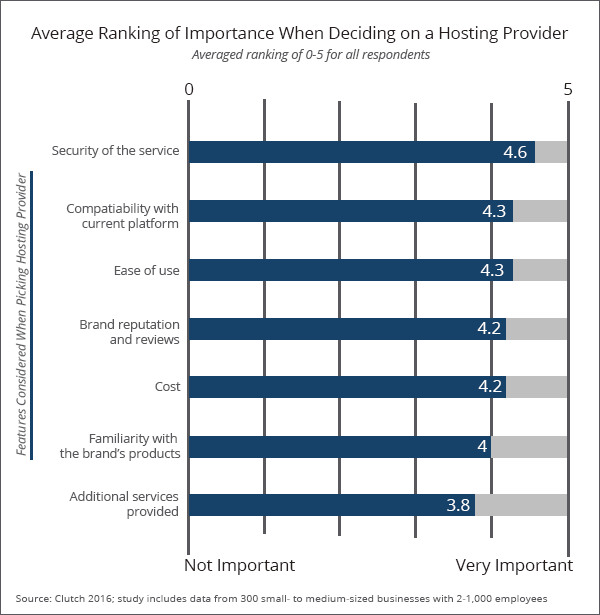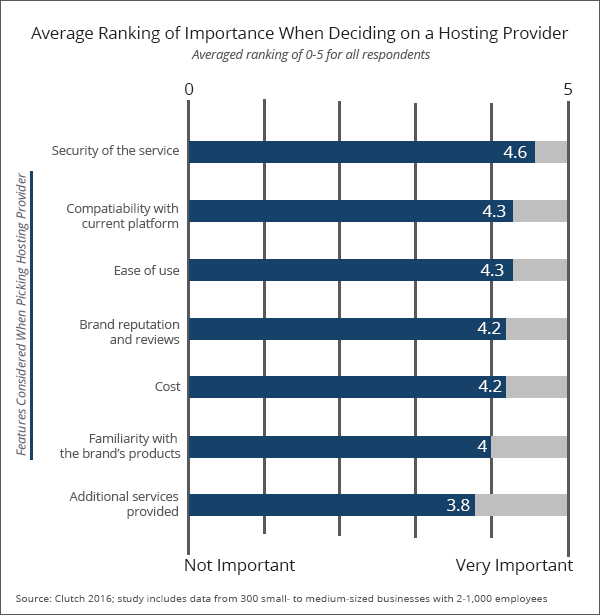The benefits of cloud hosting: 2016 cloud hosting survey by Clutch

According to a recent Clutch survey, cloud hosting is an overwhelmingly dominant trend in the hosting sphere. Nearly 95% of small to medium-sized businesses say that they already use a cloud hosting service or plan to transition to one.
Alexander Lipanov, CEO of Softarex Technologies, Inc. recently spoke to Clutch about the survey results. His insights provide more context to the findings, especially about cloud hosting’s benefits and its suitability for smaller-sized businesses.
Cutting Costs
Of the survey respondents who already use cloud hosting, 54% said they do so because it is more cost-effective.

For small to medium-sized businesses (SMBs), the financial burden and time requirements of running your own server room are often too steep.
“Cloud hosting services are popular because you can move a lot of work and responsibility to service providers,” said Lipanov. “To host your own website, you need to constantly have system administrators. You need to constantly have your own server room supported. You need to constantly support hardware on a necessary level. With cloud hosting, it is not your responsibility to, for example, change hardware from one server to another server.”
However, one should not automatically equate cost-effectiveness with picking the cheapest possible provider.
“Ensuring cost-effectiveness does not mean selecting a cheaper provider, but determining if using the provider is more cost-effective to the organization itself,” said Lipanov. “How much money is spent supporting our own server room with system administrators? This will be one amount. And how much we will pay for the same server facilities in [cloud] data centers? This can be cheaper in most cases.”
Security First
Even with a cheaper provider, you still want to keep up an ideal level of security. In fact, the survey found that security is the top consideration when picking any kind of hosting provider.

Cloud hosting can give a level of security otherwise financially impossible for an SMB. However, one should beware of cheap web hosting providers that cut corners by providing sub-par security and service.
“If people deal with different providers like Amazon, Microsoft, Rackspace, etc. — the security issue is not very important,” said Lipanov. “But lower-end service providers actually put a lot of responsibility for security on the client side. This creates issues, because not every company can have a CTO which will check all things related to security on a hardware and software level.”
Thus, an SMB should thoroughly vet the abilities of a cloud hosting provider before settling on a decision.
The Future of Hosting
Overall, it seems like the market will soon almost unanimously use cloud hosting services. This trend in hosting migration is not new, though — 72% of SMBs switched the web hosting providers sometime in the past five years.
To Lipanov, there is a simple explanation: “In the last 5 years, users have started to understand what they need and many don’t find that from their current provider. This is a normal process. When you start an online service, you may not have a full picture of your needs for two or three years.”
For now, many SMBs are seeing that their needs require cloud hosting.
We will continue to share our own and world’s best practices and are wide open to learn something new, so if you have any questions or ideas — feel free to write to us. Let’s develop the world together!





